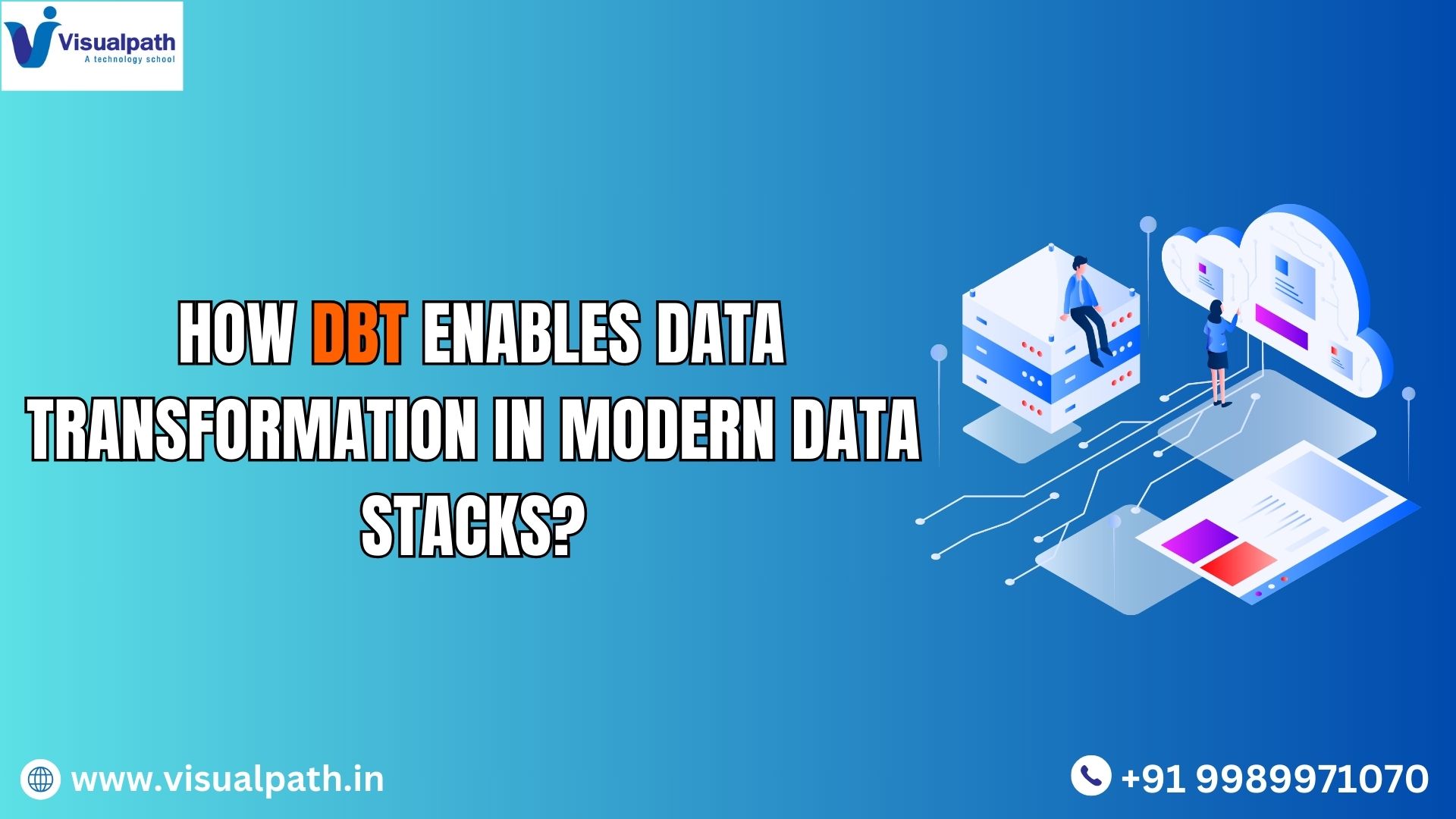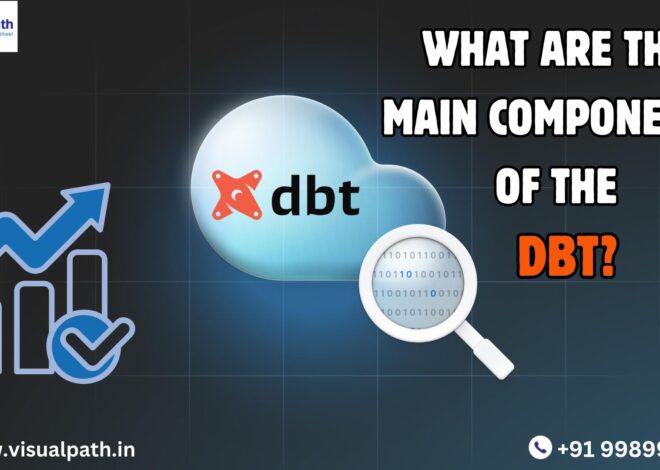Data Build Tool (dbt) has become a critical component in modern data stacks, helping organizations streamline their data transformation processes. In today’s data-driven world, where businesses rely heavily on data pipelines to analyze and make informed decisions, DBT provides a robust framework that simplifies the process of transforming raw data into actionable insights. As cloud-based data environments have become the norm, DBT enables data engineers, analysts, and scientists to automate and optimize their ETL (Extract, Transform, Load) workflows. By using DBT, organizations can maintain data integrity, enhance collaboration, and improve the overall efficiency of their data pipelines, making it a cornerstone tool for modern data operations. DBT Online Training
What is DBT and Why is It Important?
DBT is an open-source command-line tool designed to help data teams perform data transformations directly within their data warehouse. Unlike traditional ETL (Extract, Transform, Load) tools that handle data extraction and loading along with transformation, DBT focuses exclusively on the “T” of ETL—data transformation. It is built to work seamlessly with modern data platforms like Snowflake, BigQuery, Redshift, and Databricks.
What makes dbt unique is that it allows users to write SQL-based transformation scripts and build transformation workflows in a simple, modular, and version-controlled way. By enabling engineers to write SQL statements that are processed directly in the database, dbt simplifies the data transformation process and eliminates the need for complex ETL pipelines. DBT Training
Data Transformation with DBT: Key Features and Benefits
1. Simplified Data Transformation Process
In traditional ETL processes, data is first extracted from various sources, loaded into a staging area, and then transformed in separate tools or systems. However, dbt simplifies this by allowing data engineers to transform data within the data warehouse itself. Users can define transformation logic in SQL-based models, which dbt then compiles into executable queries that run in the database.
This approach eliminates the need for complex, multi-step workflows that involve disparate systems for transforming, storing, and managing data. DBT makes transformation logic easier to read, test, and modify. Users define models that specify how raw data should be transformed into final tables or views, and DBT handles the orchestration and execution.
2. Version Control and Reusability
DBT’s focus on modularity allows data engineers to write small, reusable transformation models. These models can be combined in various ways to build complex transformation workflows. Each model corresponds to an SQL file that defines the transformation logic for a particular dataset, making it easier to troubleshoot and modify the process when needed.
Version control is another key advantage of dbt. With tools like Git, teams can track changes to their dbt projects, ensuring that every update or modification to the transformation logic is documented and traceable. This makes collaboration between data engineers and analysts more efficient and helps prevent errors in the transformation pipeline. DBT Certification Training Online
3. Automation and Scheduling
Automation is a crucial aspect of modern data workflows, and DBT plays a significant role in enabling automated transformations. DBT models are automatically executed in the correct order, based on dependencies between models. This means that if one model relies on another for its data, DBT will execute them in the right sequence without the need for manual intervention.
In addition to automation, dbt can be integrated with cloud-based scheduling services such as dbt Cloud or orchestration platforms like Airflow. This ensures that transformations happen on a regular schedule, helping teams manage their data pipelines without constant oversight.
4. Testing and Documentation
Data quality is paramount in any transformation process. DBT provides a powerful set of tools for testing data to ensure that the transformations yield accurate and reliable results. Users can define tests to validate data at various stages of the transformation pipeline. For example, they can test for missing values, duplicates, or adherence to certain data constraints (e.g., valid email formats or dates). DBT Training Courses
Additionally, dbt makes it easy to document the transformation logic and the data models themselves. Once models are built, users can generate documentation that describes the structure of the data, the logic behind the transformations, and any tests that have been applied. This not only improves transparency but also makes it easier for other team members to understand and work with the data pipeline.
5. Scalability and Flexibility
DBT enables scalable and flexible data transformations, especially in cloud-based environments. As organizations scale their data pipelines, DBT ensures that transformations can handle increasing data volumes without compromising performance. DBT’s incremental models allow teams to process only the changed or new data, significantly improving efficiency for large datasets.
In modern data stacks, flexibility is important, and DBT’s compatibility with various data warehouses means that organizations are not locked into one specific platform. DBT can be integrated with platforms like Snowflake, BigQuery, and Redshift, making it adaptable to a range of cloud data environments.
Conclusion
Data Build Tool (DBT) plays a crucial role in enabling data transformation in modern data stacks by providing a flexible, scalable, and efficient framework for processing data. By focusing solely on the transformation step of the data pipeline, DBT simplifies the workflow, reduces manual intervention, and provides data teams with powerful tools for version control, testing, and automation. Whether you’re managing a small data project or an enterprise-level data pipeline, DBT provides the infrastructure to build, maintain, and scale your transformation logic seamlessly within your cloud data warehouse. By using DBT, organizations can streamline their data workflows, improve data quality, and ultimately make more informed, data-driven decisions.
Visualpath is the Best Software Online Training Institute in Hyderabad. Avail complete Data Build Tool worldwide. You will get the best course at an affordable cost.
Attend Free Demo
Call on – +91-9989971070
Visit: https://www.visualpath.in/online-data-build-tool-training.html
WhatsApp: https://www.whatsapp.com/catalog/919989971070/
Visit Blog: https://databuildtool1.blogspot.com/




